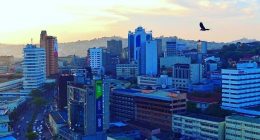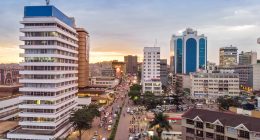Perhaps the greatest call for our generation goes way beyond leadership and extends to the ability to stand up loudly for the things we believe in. We no longer have the option, as young people of waiting in line or participating simply as by-standers in matters that actively affect us. The Women’s March was one of those moments, I believe, where it become clear that young people have the ability to organize, mobilize and show up for causes they believe are important to them. Since May 2017, over 42 women have been killed with many of them sexually abused beforehand. Most of the murders remain unsolved and perhaps even worse than that, is the trivialization of these brutal attacks which have ranged from allegations of jilted lovers, to inferring that the solution is for women to stop going out past certain hours of the night, and so forth. The seemingly lack of urgency in addressing this issue as more bodies continued to pile up is what prompted a number of civic actions protesting, demanding accountability and some semblance of justice for the victims, which culminated into the Women’s March on Saturday 30, June 2018.

The march I believe was an unprecedented success story. Aside from the fact that it was organized largely by young people, myself included, it was attended largely young people, and as we took to the streets with placards and chants escorted by Police officers who had until the evening before denied us permission for the march, the possibilities, and our ability to change our country seemed infinite. As we continue to debate and think through what the Uganda, and by extension, Africa we all want to see looks like, one thing remains clear – that Africa must be able to hear and recognize the voices of young people. Beyond that however, that Africa must be all inclusive and safe for each and every one of regardless of gender, sexuality, class background and the other differences that have continued to affect how many of us navigate life. We must ask ourselves what allyship looks like, and how we are working in the different spaces we occupy to ensure that we contribute to the transformation we want to see. The change of course is gradual; the process is slow and requires the mundane task of introspection and learning beyond what we are taught in schools, but it is necessary if we really want to be a different kind of leadership.

With the endless work that remains to be done, we must begin to think through and create communities of like-minded people whose role is to both support and encourage but also hold and keep us accountable, humble and focused on the work. I believe deeply in our ability to radically transform not only the spaces we currently occupy but our society as well, and maybe the changes will not even happen in our lifetime, but they will happen, for as long as we continue to chip away fearlessly at the different structures that do not serve us any good.







